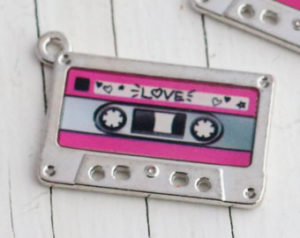Affairs, lies and anger travel together. You will face situations where tempers are lost. knowing when to leave can be your best damage control.
Knowing when to leave <<– listen to the audio here
Hi, this is Jeff Murrah with Affair Recovery Radio and I’m glad you decided to stop by. Tonight we’re going to be talking about knowing when to leave situations.
When you’re in the process of dealing with affair recovery you know that affairs, lies, and anger travel together. Since these three are often found in combination you may find yourself in situation where tempers are lost.
Knowing when to leave those kind of situations is your best form of damage control. It’s much easier taking a preventative measure than cleaning up things on the back end. That’s why I’m going to go ahead and address this.
You are going to find yourself dealing with some explosive situations. They may be discussions that you have with your spouse, they may be discussions that you have with various family members.
They may be discussions that you have with lawyers. There’s no telling. It may be people that you work with have been covering for the cheater.
Stuff like that. You’re going to find yourself in a lot of situations and when they get explosive- you need to know when to leave situations.
Because for some of us, if we get honest with ourselves, we don’t know when to leave. We always find ourselves staying too long and then regretting what happened. This is to avoid that.
The solution, the simple answer is “Know when to leave“. I’m going to go into a little more detail about how to know when to leave, because a lot of times when you’re in the midst of dealing with something that’s painful, something that’s emotional, something that’s as personal as an affair, it’s hard to know when to leave.
The first thing to look for.
- When drugs and alcohol are present, leave.
Because what happens when you take an emotionally hot situation and you throw drugs and alcohol in there, that is like gasoline when passions are present.
Much like throwing gasoline on a fire that acts like an accelerant, when you put hot passions and combine it with drugs and alcohol, that’s an accelerant to violence. And you don’t want that.
Another one is when weapons are being brandished; you want to leave. It’s one thing if a person has weapons in the house, but when they start bringing them out and either make threats with them or it’s implied that there’s threats, or that they are prepared to resort to that, leave. Because they’re letting you know right then, at that moment, that they are not open to talking.
That’s one clear signal there.
2. Leave when your body tells you that it’s time to go. Now, I know some of you, you’re so used to just blowing and going you never stop to pay attention to what your body’s telling you.
It’s going to be important to do that because each of you will find that your own signal will be different. With some of you it may be that you find yourself clenching your teeth, or you feel your jaw tightening up.
It may be that you feel your blood pressure going up, or that your muscles start quivering. Either at the back of your neck, or in my case a lot of times my upper lip starts quivering. When that happens I know that I need to leave the situation before I lose my cool.
With some of you it may be that your heart’s racing. I know this one fellow I worked with, when he would get angry his fist would start balling up.
When signals like this happen, or you feel that rush of heat that comes over you when you’re angry, these amount to your body telling you it’s time to get out of the situation.
You need to wake up to those. When those signals happen leave. It’s okay if you haven’t finished saying what you want to say. You can always come back and try again. Once bad things are said, it’s too late. When those signals happen, leave.
3. When you or your spouse refuse to sit down. This one may strike you odd, but in working with couples, especially when they’re not getting along and there’s a lot of conflict, the risk of violence goes up when both parties are standing.
If you’re talking to your spouse and things are getting heated, if both of you are still sitting down that’s okay. If things are getting heated and people start standing up and start pacing, that’s not a good signal.
Because what happens, there’s a much higher risk of violence when people are standing. It’s very rare that people reach out across a table when they’re sitting and hit someone else, or push someone else, or shove them, at that point. The likelihood of that happening when they are standing is much greater.
These are some signals to let you know when you need to leave. Let me review them again. When drugs and alcohol are present, leave. You want to leave when your body tells you it’s time to go. And number three, when you or your spouse refuses to sit down.
I went ahead and put it that way because the person who’s losing their cool may not be the cheater. It may be you. Of course, it could be the cheater. But whichever party, these are some of the signals that you want to be aware of.
You can go ahead and start training yourself to listen to your body and paying attention to these things. Because leaving a conversation a little bit too early is a much better situation to deal with than one where people have been hurt, or things have been said that can’t be fixes so easily.
I encourage you to go ahead and start working on getting these things in place. I appreciate you tuning in Affair Recovery Radio, and I hope that you tune in for future episodes as we deal with topics such as this.
Best Regards,
Jeff














